Manual of the Warrior of Light #1
This is my biggest project so far, I worked on it for two years. Paulo Coelho still doesn't know about it, and I'm trying to reach him so to know what he thinks, at least. I did it without never studying illustration of anykind, using watercolor and paper, nothing more. And after a day of hard work as English teacher and photographer, I used to paint in the night.
This is because I believe in my dream, I didn't want to give up, so I finished the whole book.
The "Manual of the Warrior of the Light" is one of my favourite book of all times. I hated it, at the beginning, I was having a hard period. But, after months, it became one of my best paper-friends. And still it is. Be strong, be smart, believe in your dreams, follow your personal call, accept to fail and get up when you fall.
Here it is. Have a look, and you can read it, if you want. And if you like the illustration, spread the voice, so that the writer finally tells me if he likes it :)
This is part. 2

A warrior of light accepts his Personal Legend completely. His companions say: ‘He has remarkable faith!’ For a moment, the warrior feels proud, then immediately feels ashamed of what he has heard because he does not have as much faith as he appears to have. At that moment, his angel whispers: ‘You only are an instrument of the light. There is no reason to feel proud or to feel guilty, there are only reasons to feel happy’. And the warrior of light, aware now that he is but an instrument, feels calmer and more secure.

‘Hitler may have lost the war on the battlefield, but he ended up winning something too’, says M. Halter, ‘because man in the twentieth century created the concentration camp and revived torture and taught his fellow men thatbit is possible to close their eyes to the misfortunes of others’. Perhaps he is right: there are abandoned children, massacred civilians, innocent people imprisoned, lonely old people, drunls in the gutter, madmen in power. But perhaps he isn’t right at all, for there are also warrior of light. And warriors of light never accept what is unacceptable.

The warrior of light never forgets the old saying: the good little goat doesnt bleat. Injustices happen. Everyone finds themselves in situations theu do not deserve, usually when they are unable to defwnd themselves. Defeat often knocks at the warrior’s door. At such times, he remains silent. He does not waste energy on words, because they can do nothing; it is best to use his strength to resist and have patience, knowing that Someone is watching, Someone who saw the unnecessary suffering and who will not accept it. That Someone gives him what he most needs: time. Sooner or later, everything will once more work in his favour. A warrior of light is wise; he does not talk about his defeats.

A sword may not last very long, but the warrior of light must. That is why he never allows himself to be deceived by his own abilities and this avoids being taken by surprise. He gives each thing the value it deserves. Often, when the warrior is pondering grave matters, the devil whispers in his ears: ‘Don’t worry about that, it is not important’. At others, when he is faved by banalities, the devils says to him: ‘You should puor all your energies into resolving this situation’. The warrior does not listen to what the devil is telling him; he is the master of his sword.
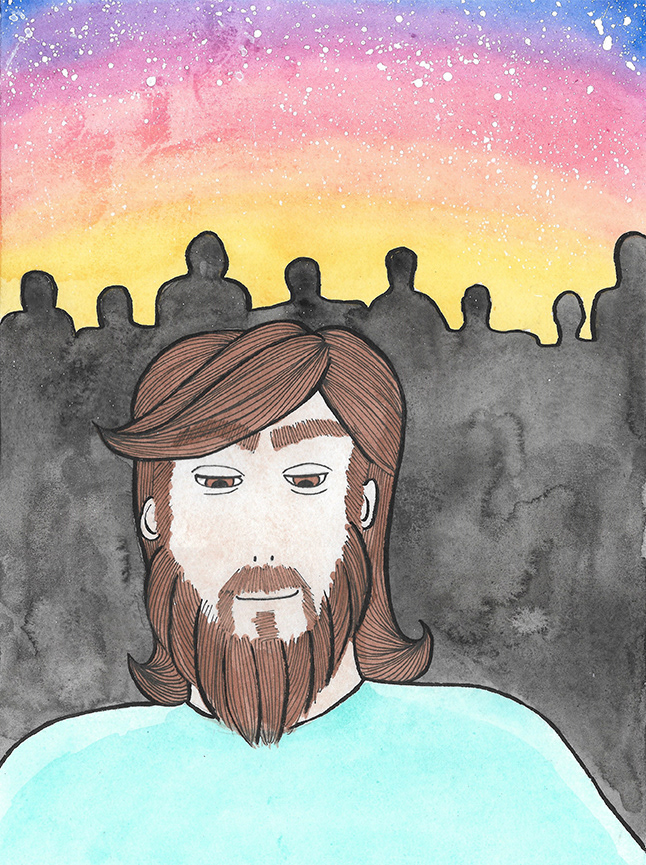
A warrior of light is always vigilant. He does not ask anyone else for permission to wield his sword; he simply takes it in his hands. Nor does he waste time explaining his actions; faithful to God’s decisions, he gives his answer in what he does. He looks to either side of him and identifies his friends. He looks behind him and identifies his opponents. He is implacable with treachery, but he does not seek revenge; he merely drives away the enemies of his life, never fighting with them any longer than necessary. A warrior does not try to seem, he is.

A warrior does not keep company with those who wish to harm him. Nor he is seen in the company of those who wants to ‘console’ him. He avoids anyone who is only by his side in the event of a defeat: these false friends want to prove that weakness is rewarded. They always bring him bad news. They always try to destroy the warrior’s confidence, all under the cloak of ‘solidarity’. When they see him wounded, they dissolve in tears, but, in their heart of hearts, they are happy because the warrior has lost a battle. They do not understand that this is part of the fight. The true companions of a warrior are beside him always, during the difficult times and the easy times.

At the beginning of his struggle, the warrior of light stated: ‘I have dreams’. After some years, he realises that it is actually possible to reach his goal; he knows that he will be rewarded. At that moment, he feels sad. He knows about other people’sunhappiness, about the loneliness and frustration experienced by a large section of humanity, and he does not believe that he deserves what he is about to receive. His angel whispers: ‘Give it all up’. The warrior kneels down and offers God his conquests. The act of surrender offers the warrior to stop asking foolish questions and helps him to overcome his feelings of guilt.
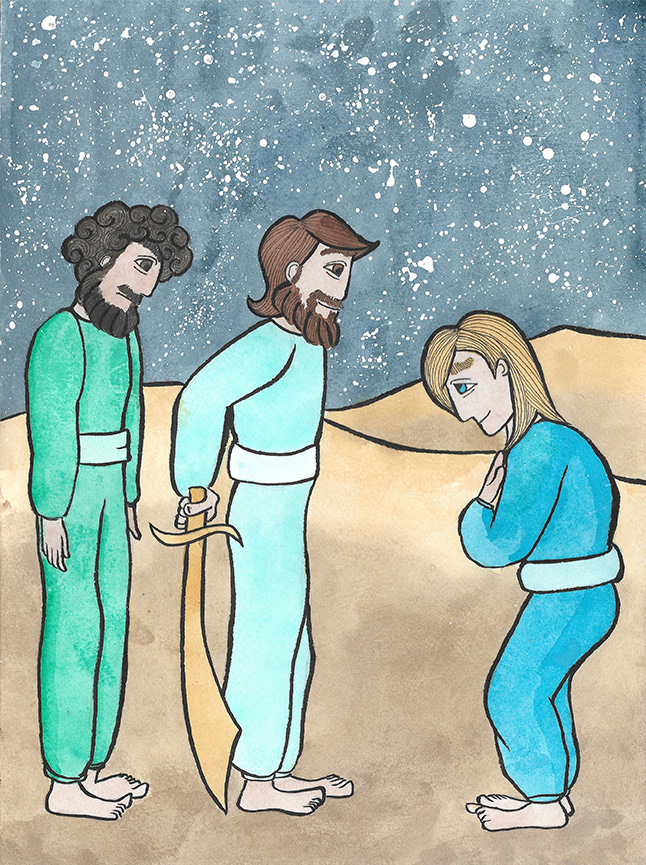
The warrior of light has the sword in his hands. He is the one who decides what he will do and what he will never do. There are moments when life leads him into a crisis; he is separated from things he has always loved; it is then that the warrior reflects. He checks that he is fulfilling God’s will or he is merely acting selfishly. If this separation is really part of his path, then he accepts without complaint. If, however, such a separation was provoked by someone else’s perverse actions, then hebis implacable in his response. The warrior possesses both force and forgiveness. He can use both with equal skill.
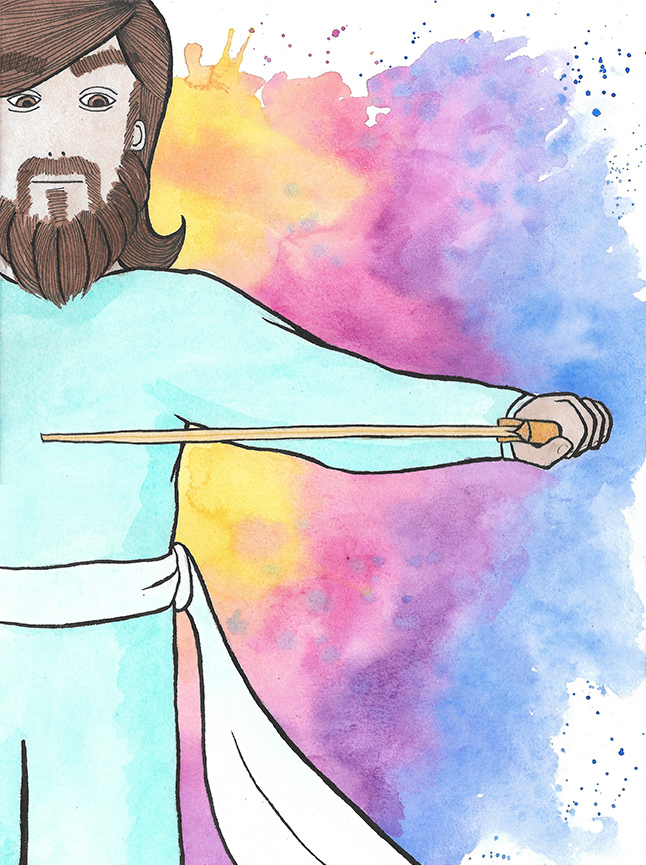
The warrior of light never falls into the trap ofbthat word ‘freedom’. When his people are oppressed, freedom is a very clear concept. At such times, using sword and shield, he fights as lobg as he has breath and life. When cobtrasted with oppression, freedom is easy to understand: it is the opposite of slavery. But sometimes the warrior hears older people saying: ‘When I stop working, I will be free’. A year later, those same people are complaining: ‘Life is all boring routine’. In this case, freedom is difficult to understand: it means absence of meaning. A warrior of light is always commited. He is the slave of his dream and free to act.

A warrior of light is not constantly repeating the same struggle, especially when there are neither advances or retreats. If a battle is not progressing, he knows that he must sit down with the enemy and negotiate a truce; they have both practiced the art of the sword, now they need to understand each other. This is a dignified gesture, not a cowardly one. It is a balance of forces and a change of strategy. Once the peace plans ave been drawn up, the warriors return to their houses. They do not need to prove anything to anyone. They fought the Good Fight and kept the faith. Each one gave a little, thus learning the art of negotiation.

The friends of the warrior of light ask him where he draws his energy from. He says: ‘From the hidden enemy’. His friends ask who that is. The warrior responds: ‘Someone we can no longer hurt’. It might be a boy who beat him in a childhood scrap, the girlfriend who left him when he was eleven, the teacher who said he was stupid. When he is tired, the warrior reminds himself that these enemies have still not seen his courage. He does not consider revenge, because the hidden enemy is no longer part of his story. He thinks only of improving his skill so that his deeds will be known throughout the world and reach the earsof those who have hurt him in the past. Yesterday’s pain is the warrior of light’s strength.

A warrior of light always has a second chance in life. Like all other men and women, he was not born knowing how to use a sword; he made many mistakes before he discovered his Personal Legend. No warrior can sit down by the fire and tell the others: ‘I always did the right thing’. Anyone who says this is lying and has not learned to know himself yet. The true warrior of light has committed injustices in the past. But as he proceeds in his journey, he realises that the people with whom he did not behave correctly always cross his path again. It is his chance to right the wrong he did them, and he always, unhesitatingly, seizes that chance.
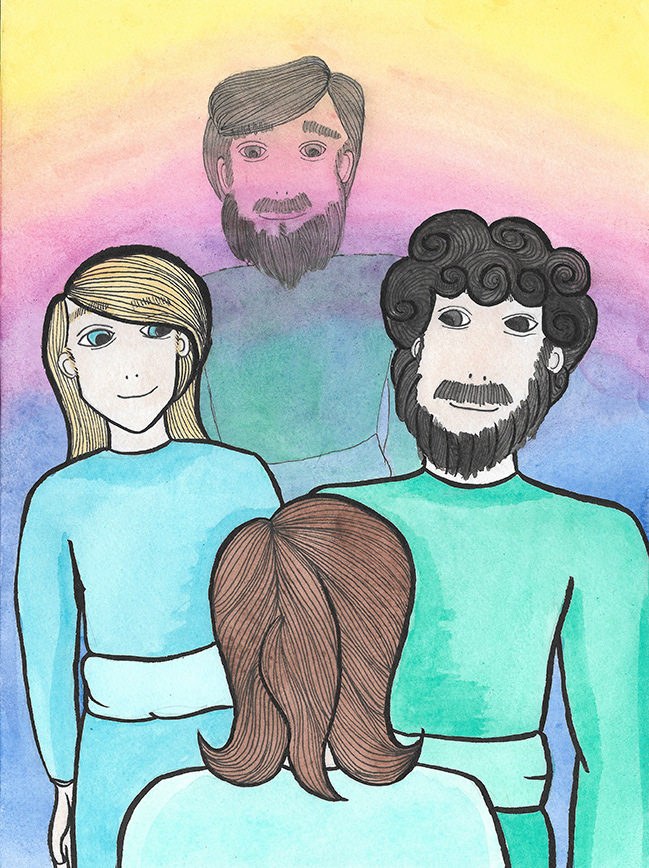
A warrior is as wise as a serpent and as innocent as a dove. When people gather to talk, he does not judge the behaviour of others; he knows that darkness uses an invisible net to spread its evil. This net catches any snippet of information floating in the air and transforms it into the intrigue and envy that infest the human soul. Thus, everything that is said about someone always reaches the ears of the enemies of that person, augmented by the dark weight of poison and malice. For this reason, when the warrior speaks of his brother’s opinions, he imagines that his brother is there present, listening to what he is saying.
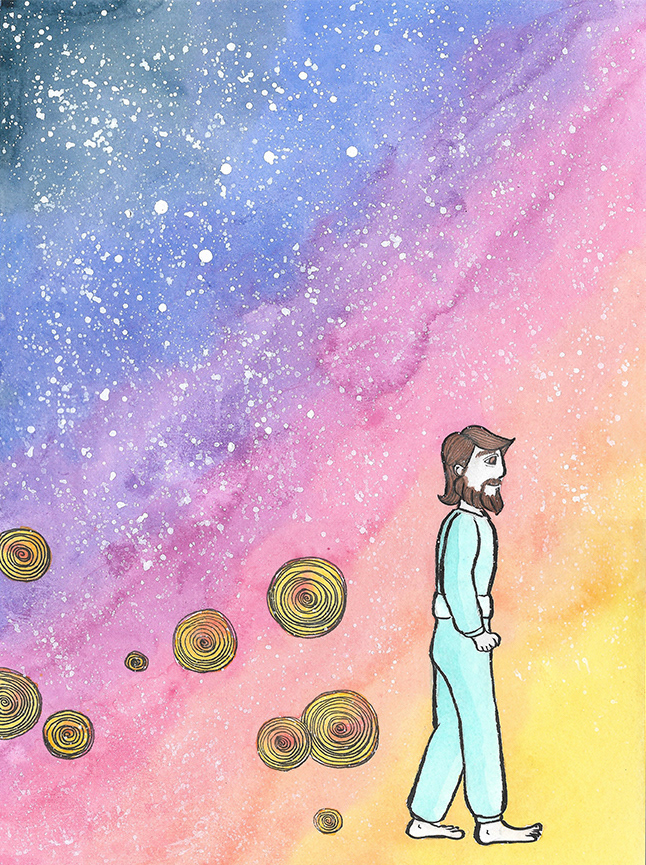
The Breviary of Medieval Knights says: 'The spiritual energy of the Path uses justice and patience to prepare your spirit. This is the Path of the Knight: a path that is at once easy and difficult, because it forces one to set aside trivial things and change friendships. That is why, at first, many hesitate to follow it. This is the first teaching of the Knights: you will erase everything you had written in the book of your life up until now: restlessness, uncertainty, lies. And in the place of all this you will write the word COURAGE. By beginning the journey with that word and continuing with faith in God, you will arrive wherever you need to arrive'.

When the moment for combat approaches, the warrior of light is prepared for all eventualities. He analyses every strategy and asks: 'What would I do if I had to fight myself?' He thus discovers his weak points. At that moment, his opponent approaches; he comes with a bag full of promises, treaties, negotiations. He has tempting proposals and easy alternatives. The warrior analyses each of the proposals; he also seeks agreement, but without ever losing his dignity. If he avoids combat, it will not be because he was seduced, but because he judged it to be the best strategy. A warrior of light does not accept gifts from his enemy.

I repeat: You can recognise a warrior of light by the look in his eye. Warriors of light are in the world, the form part of the world, and they were sent into the world without saddlebags or sandals. They are often cowardly. They do not always act correctly. Warriors of light are wounded by the most foolish things, they worryabout trivialities, they believe themselves incapable of growing. Warriors of light sometimes believe themselves unworthy of any blessing or miracle. Warriors of light often ask themselves what they are doing here. Often they find their lives meaningless. That is why they are warriors of light. Because they fail. Because they ask questions. Because they keep looking for a meaning. And, in the end, they will find it.

The warrior of light is now waking from his sleep. He thinks: 'I do not know how to deal with this light that is making me grow'. The light, however, does not disappear. The warrior thinks: 'Changes must be made that I do not feel like making'. The light remains, because 'feel' is a word full of traps. Then the eyes and heart of the warrior begin to grow accustomed to the light. It no longer frightens him and he finally accepts his own Legend, even if this means running risks. The warrior has been asleep for a long time. It is only natural that he should wake up very gradually.

The experienced fighter puts up with insults; he knows the strength of his fist and the skills of his blows. Confronted by an unprepared opponent, he looks deep into his eyes and conquers him without ever having to resort a physical fight. As the warrior learns from his spiritual master, the light of faith shines in his eyes and does not need to prove anything to anyone. He is not bothered by his opponent's aggressive arguments which say that God is a superstition, that miracles are just tricks, that believing in angels is running away from reality. Like the fighter, the warrior of light is awareof his own immense strength; he never fights with anyone who does not deserve the honour of combat.

The warrior of light must always remember the five rules of combat, set down by Chuan Tzu three thousand years ago: FAITH: Before going into battle, you must believe in the reasons for the fight. COMPANIONS: Choose your allies and learn to fight in company, for no one ever won a war single-handed. TIME: A battle in winter is different from a battle in summer; a good warrior is careful to select the right moment to begin a fight. SPACE: One does not fight in the same way in a mountain pass as one would on a plain. Think about your surroundings and how best to move around in them. STRATEGY: The best warrior is the one who plans his fight.

The warrior rarely knows the result of a battle when the battle is over. The activity of fighting will have generated an enormous amount of energy around him and there is always a moment when victory and defeat are both equally possible. Time will tell who won and who lost, but he knows that, from that moment on, he can do nothing more: the fate of that battle lies in God's hands. At such moments, the warrior of light is not concerned with results. He examines his heart and asks: 'Did I fight the Good Fight?' If the answer is 'yes', he can rest. If the answer is 'no', he takes up his sword and begins training all over again.

Each warrior of light contains within him the spark of God. His destiny is to be with other warriors, but sometimes he will need to practice the art of the sword alone; this is why, when he is apart from his companions, he behaves like a star. He lights up his allotted part of the Universe and tries to point out galaxies and worlds to all those who gaze up at the sky. The warrior's persistence will soon be rewarded. Gradually, other warriors approach, and they join together to form constellations, each with their own symbols and mysteries.
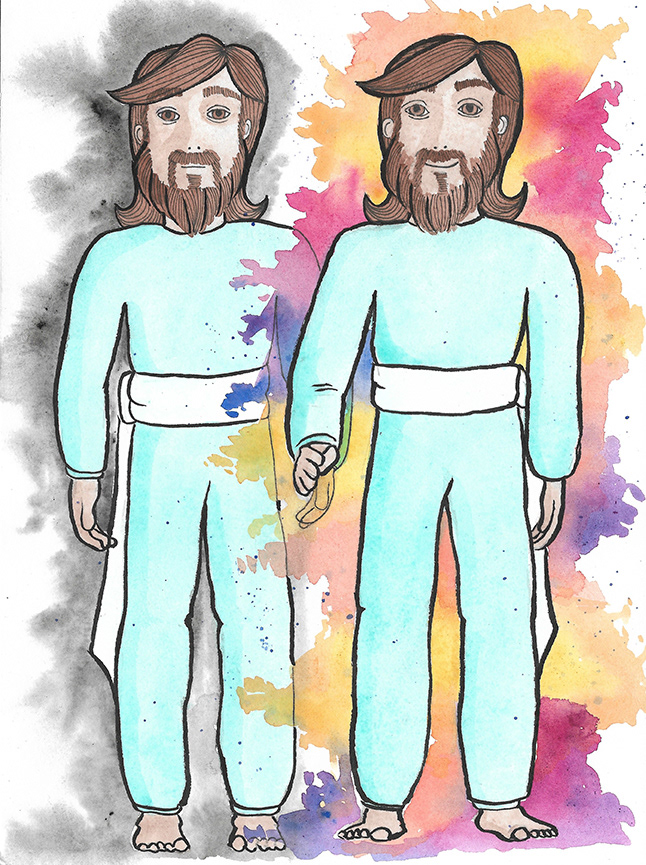
Sometimes the warrior feels as if he was living two lives at once. In one of them he is obliged to do all the things he does not want to do and to fight for ideas in which he does not believe. But there is another life, and he discovers it in his dreams, in his reading and in his encounters with people who share his ideas. The warrior allows his two lives to draw near. 'There is a bridge that links what I do with what I would like to do', he thinks. Slowly, his dreams take over his everyday life, and then he realises that he is ready for the things he always wanted. Then all that is needed is a little daring, and his two lives become one.

Write down again what I told you: The warrior of light needs time to himself. And he uses that time for rest, contemplation and contact with the Soul of the World. Even in the midst of a battle, he manage to meditate. Occasionally, the warrior sits down, relaxes and lets everything that is happening around him continue to happen. He looks at the world as if he were a spectator, he does not try to add to it or to take away from it, he merely surrenders unresistingly to the movement of life. Little by little, everything that seemed complicated begins to become simple. And the warrior is glad.

The warrior of light is wary of people who think they know the path. They are always so confident of their own ability to make decisions that they do not notice the irony with which destiny writes each life and they always complain when the inevitable knocks at the door. The warrior of light has dreams. His dreams carry him forward. But he never makes the mistake of thinking that the way is broad and the gate is wide. He knows that the Universe functions in the same way as Alchemy: SOLVE ET COAGULA, said the masters. 'Concentrate and disperse your energies according to the situation'. There are moments when one should act and moments when one should accept. The warrior knows how to distinguish between these moments.

The warrior of light, once he has learned how to use a sword, discovers that his equipment is still incomplete - he needs armour. He sets off in search of this armour and he listens to the advice of various salesmen. 'Use the breastplate of solitude', says one. 'Use the shield of cynicism', says another. 'The best armour is not to get involved in anything', says a third. The warrior, however, ignores them. He calmly goes to his sacred place and puts on the indestructible cloak of faith. Faith parries all blows. Faith transforms poison into crystalline water.

'I always believe everything anyone tells me and I'm always disappointed', his companions say. It is important to trust people; a warrior of light is not afraid of disappointments because he knows the power of his sword and the strength of his love. However, he imposes certain limits: it is one thing to accept God's signs and to know that the angels use the mouths of other people to give us advice. It is quite another to be incapable of making decisions and to be always looking for ways of letting others tell us what we should do. A warrior trusts other people because, first and foremost, he trust himself.
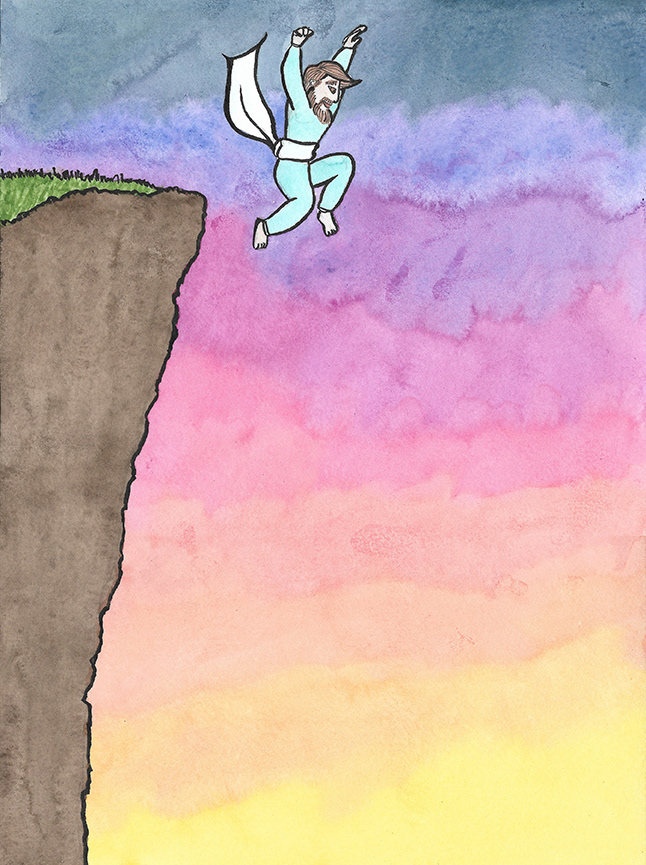
The warrior of light views life with tenderness and determination. He stands before a mistery, whose solution he will one day find. Every so often, he says to himslef: 'This life is absolutely insane'. He is right. In surrendering to the miracle of the everyday, he notices that he cannot always foresee the consequences of his actions. Sometimes he acts without even knowing that he is doing so, he saves someone without even knowing he is saving them, he suffers without even knowing why he is sad. Yes, life is insane. But the great wisdom of the warrior lies in choosing his insanity wisely.

The warrior of light studies the two columns on either side of the door he is trying to open. One is called Fear and the other is called Desire. The warrior looks at the column of Fear and on it it's written: 'You are entering a dangerous, unfamiliar world where everything you have learned up until now will prove useless'. The warrior looks at the column of Desire and on it it's written: 'You are about to leave a familiar world wherein are stored all the things you ever wanted and for which you struggled long and hard'. The warrior smiles because nothing frightens him and nothing holds him. With the confidence of one who knows what he wants, he opens the door.

The warrior of light practices a powerful exercise for inner growth: he pays attention to the things he does automatically, such as breathing, blinking, or noticing the things around him. He does this when he feels confused, and in ghis way he frees himself from tensions and allows his intuition to work more freely, without interference from his fears and desires. Certain problems that appeared to be insoluble are solved, certain sorrows from which he thought he would never recover vanish naturally. He uses this technique whenever he is faced with a difficult situation.
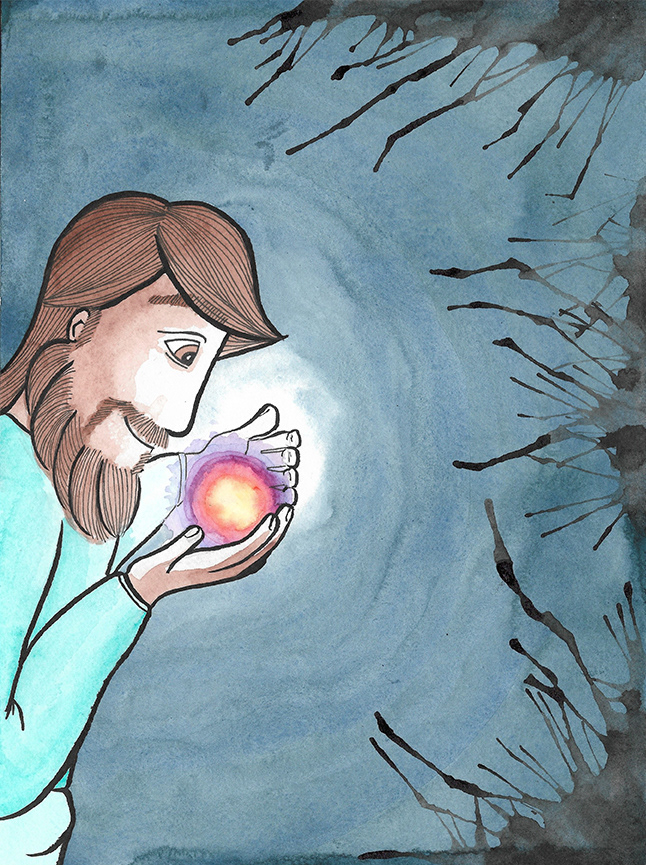
The warrior of light hears comments like: 'There are certain things that I'd rather not talk about because people are so envious'. When he hears this, the warrior laughs. Envy cannot hurt you, if you don't let it. Envy is a part of life and everyone should learn how to deal with it. However, he rarely discusses his plans. And sometimes people believe this is because he os afraid of envy. But he knows that whenever he talks about a dream, he uses a little bit of the energy of that dream in order to do so. And by talking, he runs the risks of spending all the energy he needs to put the dream into action. A warrior of light knows the power of words.
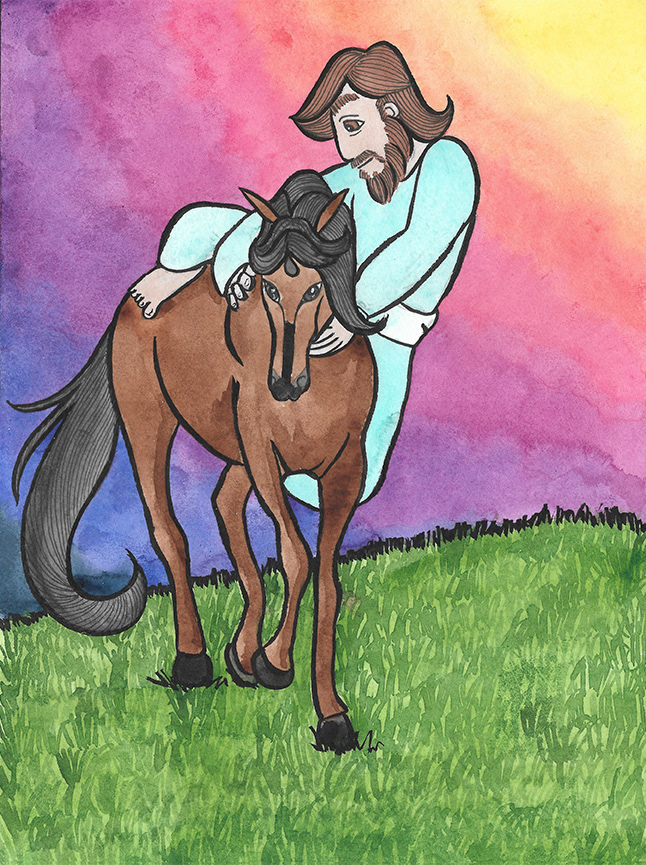
The warrior of light knows the value of persistence and courage. Often, during combat, he receives blows that he was not expecting. And he realises that, during the war, his enemy is bound to win some of the battles. When this happens, he weeps bitter tears and rests in order to recover his energies a little. But he immediately resumes his battle for his dreams. The longer he remains away, the more likely he is to feel weak, fearful and intimidated. When a horseman fall off his horse, if je does not remount immediately, he will never have the courage to do so again.

A warrior knows when a battle is worth fighting. He bases his decisions on inspiration and faith. He nevertheless meets people who ask him to fight battles that arr not his own, on battlefields he does not know or which do not interest him. They want to involve the warrior of light in contests that are important to them, bit not to him. Often these are people close to the warrior of light, people who love him and trust in his strength and who want him in some way to ease their anxieties. At such moments, he smiles and makes it clear to them that he loves them but he does not take up the challenge. A true warrior of light always chooses his own battlefield.

The warrior of light knows how to lose. He does not treat defeat as if it were a matter of indifference to him, saying things like 'Oh, it doesn't matter' or 'To be honest, I didn't want it that much', he accepts defeat and does not try to make a victory out of it. Painful wounds, the indifference of friends, the loneliness of loosing - all leave a bitter taste. But at these times, he says to himself: 'I fought for something and did not succeed. I lost the first battle'. These words give him renewed strength. He knows that no one wins all the time and he knows how to distinguish his successes from his failures.

When somebody wants something, the whole Universe conspire in their favour. The warrior of light knows this. For this reason, he takes great care with his thoughts. Hidden beneath a whole series of good intentions lie feelings that no one dare confess to himself: vengeance, self-distruction, guilt, fear of winning, a macabre joy at other people's tragedies. The Universe does not judge; it conspires in favour of what we want. That is why the warrior has the courage to look into the dark places of his soul in order to ensure that he is not asking for the wrong things. And he is always very careful about what he thinks.

Jesus said: 'Let your words be 'Yes, yes' or 'No, no''. When the warrior takes on a commitment, he keeps his word. Those who make promises they do not keep, lose their self-respect and feel ashamed of their actions. These people spend their lives in constant flight; they expend far more energy on coming up with a whole series of excuses to unsay what they said than the warrior of light does in honouring his commitments. Somtimes he too takes on some foolish commitment which will in some way harm him. He does not repeat thos mistake, but he nevertheless keeps his word and pays the price for hos own umpulsiveness.

When he wins a battle, the warrior celebrates. The victory has cost him anxious moments, nights racked with doubt, endless days of waiting. Since ancient times, celebrating a triumph has been part of the ritual of life itself: celebration is a rite of passage. His companions see the warrior of light's joy and think: 'Why is he doing that? He might be disappointed in his next battle. He might draw down on himself the wrath of his enemy'. But the warrior knows why he is celebrating. He is savouring the best gift that victory can bring: confidence. He celebrates yesterday's victory in order to gain more strength for tomorrow's battle.

One day, for no apparent reason, the warrior realises that he does not feel the same enthusiasm for the fight that he used to. He continues to do what he has always done, but every gesture seems meaningless. At such a time, he has only one choice: to continue fighting the Good Fight. He says his prayers out of duty or fear or whatever, but he does not abandon the path. He knows that the angel of the One who inspires him has simply wandered off somewhere. The warrior keeps his attention focused on the battle and he perseveres, even when everything seems utterly pointless. The angel will soon return and the merest flutter of his wings will restore the warrior's joy to him.

A warrior of light shares with others what he knows of the path. Anyone who gives help also recives help and needs to teach what he has learned. That is why he sits by the fire and recounts his day on the battlefield. A friend whispers: 'Why talk so openly about your strategy? Don't you realise that, by doing so, you run the risk of sharing your conquests with others?' The warrior merely smiles and says bothing. He knows that if, at the end of his journey, he arrives to find an empty paradise, his struggle will have been a waste of time.
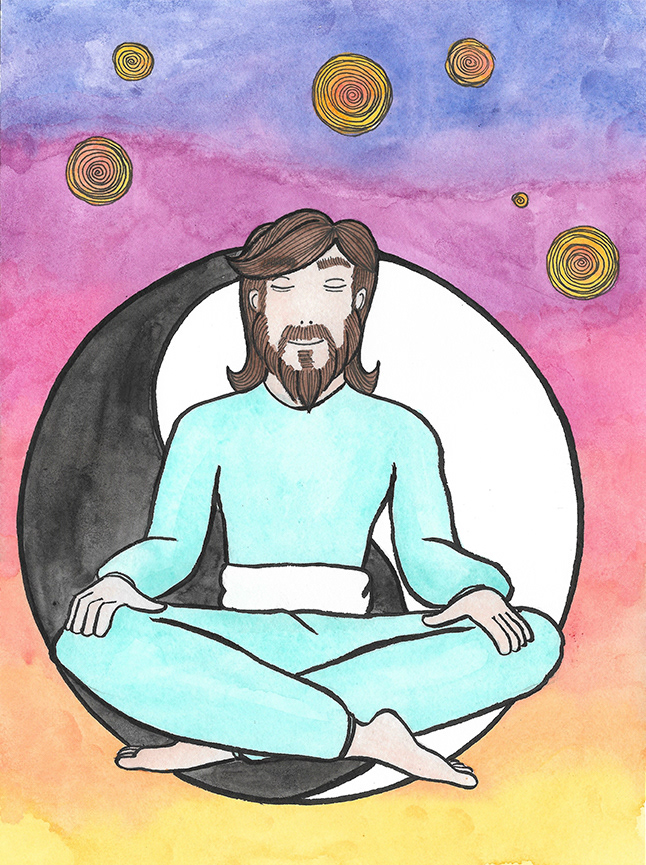
The warrior of light has learned that God uses solitude to teach us how to live with other people. He uses rage to show the infinite value of peace. He uses boredom to underline the importance of adventure and spontaneity. God uses silence to teach us to use words responsibly. He uses tiredness so that we can understand the value of waking up. He uses illness to underline the blessing of good health. God uses fire to teach us about water. He uses earth so that we can understand the value of air. He uses death to show us the importance of life.
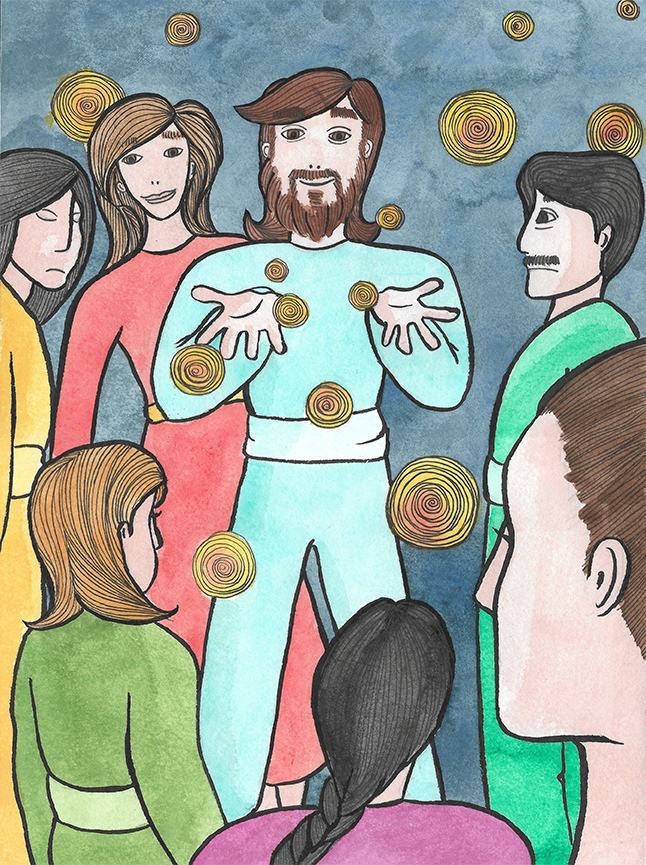
The warrior of light gives Before he is asked. Seeing this, some of his companions say: 'If someone wants something, they'll ask for it'. But the warrior knows that there are many people who simply cannot bring themselves to ask for help. Alongside him live people with such fragile hearts that love becomes a sickness; they are starving for affection and yet are ashamed to show it. The warrior gathers such people round the fire, he tells stories, shares his food, gets drunk with them. The following day, everyone feels better. Those who look on other people's misery with indifference are the most miserable of all.

If the strings of an instrument are always taut, they go out of tune. Warriors who spend all their time training lose their spontaneity in battle. Horses that are always jumping fences end up breaking a leg. Bows that are bent all day no longer shoot arrows with the same force. That is why, even if he is not in the mood, the warrior of light tries to enjoy the small everyday things of life.

The warrior of light listens to Lao Tzu when he says that we should let go of the idea of days and hours in order to pay more attention to the moment. Only in this way he can resolve certain problems before they occur; by focusing on the small things, he manages to avoid larger calamities. But thinking about the small things is not the same as thinking small. Over-anxiety ultimately banishes every trace of joy from life. The warrior knows that a great dream is nade up of many diferent things, just as the light from the sun is the sum of its millions of rays.

There are times when the warrior's path becomes merely routine. Then he applies the teaching of Rabbi Nachman of Breslov: 'If you cannot meditate, you should repeat one simple word, because this is good for the soul. Do not say anything else, just repeat that word over and over, innumerable times. Finally, it will lose all meaning, but take on an entirely new significance. God will open the doors and you will find yourself using that simple word to say everything that you wanted to say'. When he is firced to perform the same task several times, the warrior uses this tactic and transforms work into prayer.

A warrior of light has no 'certainties', he just has a path to follow, a path to which he tries to adapt depending on the season. During battles that take place in summer he does not use the same eauipment and techniques that he would use during battles that take place in winter. By being flexible, he no longer judges the world on the basis of 'right' and 'wrong', but on the basis of 'the most appropriate attitude for that particular moment'. He knows that his companions also have to adapt and is not surprised when they change their attitude. He givea each one the necessary time to justify his actions. But when it comes to treachery, he is implacable.
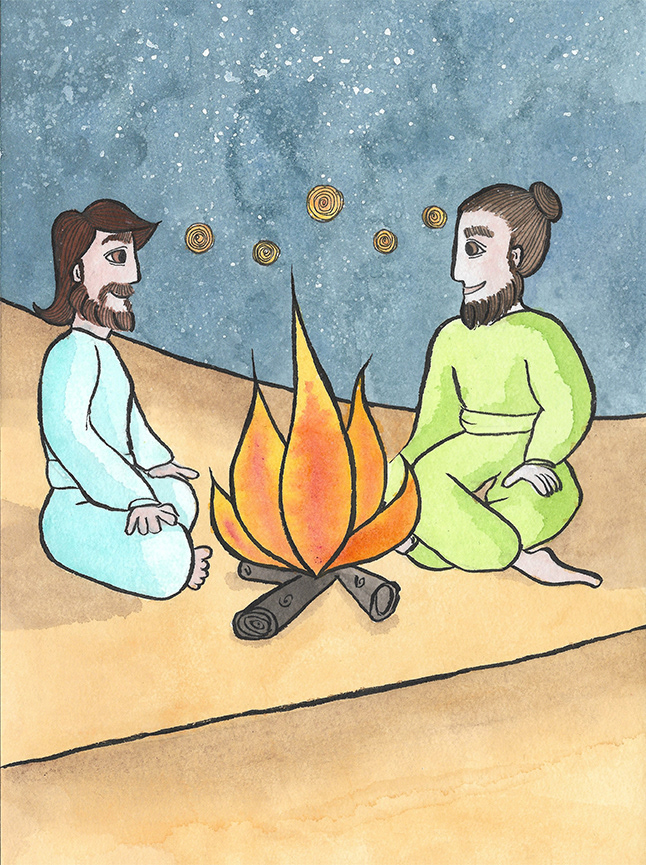
A warrior sits around the fire with his friends. They spend hours criticising each other, but they end the night sleeping in the same tent, having forgotten all the insults that were bandied about. Occasionally, a new member joins the group. Because he does not yet share a common history, he shows only his good qualities, and some see in him a master. But the warrior of light never compares him with his old companions in battle. He makes the stranger welcome, but he will not trust him until he knows his defects too. A warrior of light does not go into battle without knowing the limitations of his ally.
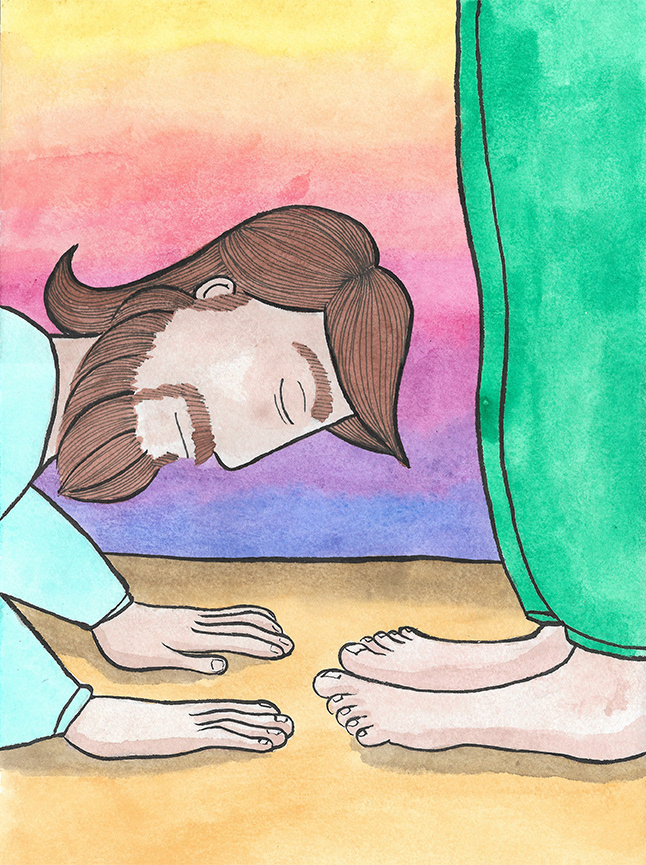
The warrior knows an old saying: 'If regret could kill...' And he knows that regrets can kill; they slowly eat away at the soul of someone who has done something wrong and they lead eventually to self-destruction. The warrior does not want to die like that. When he acts perversely or maliciously - because he is a man of many faults - he is never too ashamed to ask forgiveness. If possible, he does his best to repair the wrong he has done. If the injured party is dead, then he does some good turn to a stranger and offers up that task to the soul that he wounded. A warrior of light has no regrets, because regrets can kill. He humbles himself and undoes the wrong he has done.
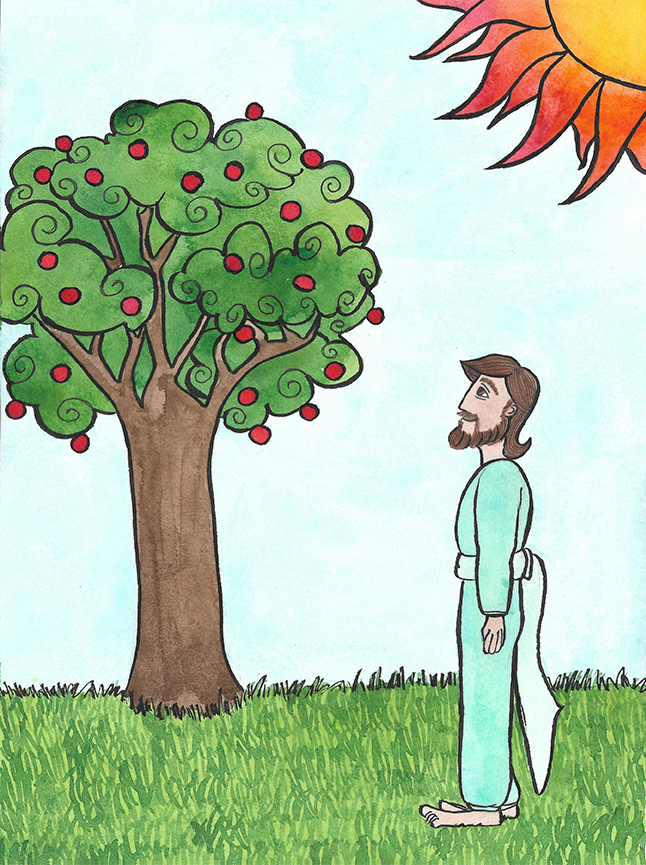
All warriors of light have heard their mothers say: 'My son wasn't thinking straight when he did that; deep down, he's a very good person'. Although he respects his mother, he knows that this is not true. He does not waste his time blaming himself for his rash actions nor does he spend his life forgiving himself for all the wrong he has done - doing that would never set him back on the right path. He uses common sense to judge not the intention of an action but its consequences. He takes responsibility for everything he does, even if he has to pay a high price for his mistake. As the old Arabic proverb says: 'God judges a tree by its fruits and not by its roots'.
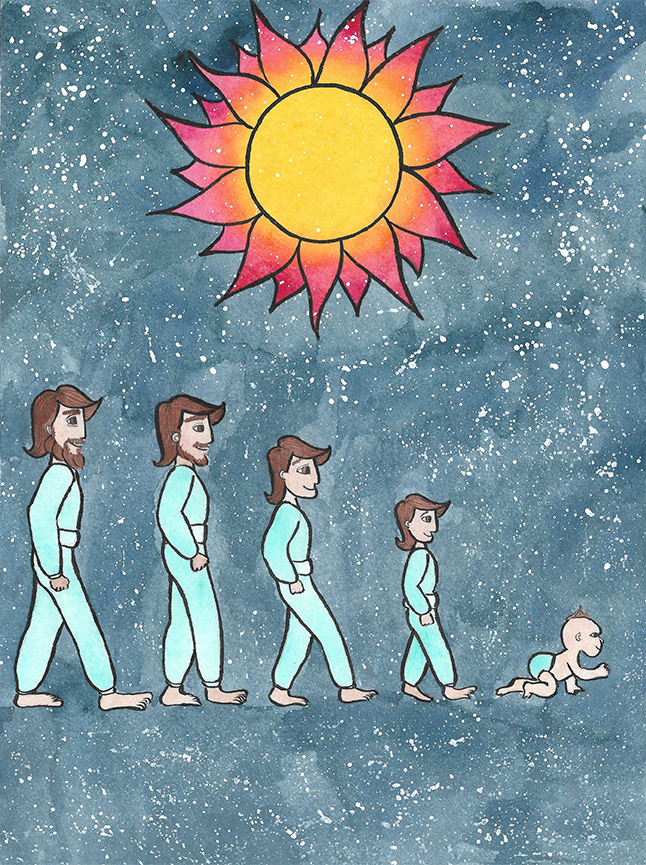
Before making any important decision - declaring a war, moving with his companions to another plain, choosing a field in which to sow seed - the warrior asks himself: 'How will this affect the fifth generation of my descendants?' A warrior knows that everything a person does has enduring consequences and he needs to understand what kind of world he is leaving behind for that fifth generation.

'It's just a storm in a tea cup', someone says to the warrior of light. But he never exaggerates his difficulties and always tries to remain calm. And he never judges someone else's suffering. A small detail - which does not affect him in the least - could serve to ignite ste storm brewing in his brother's soul. The warrior respects the suffering of others and does not try to compare it with his own. The cup of suffering is not the same size for everyone.

'The most important quality on the spiritual path is courage', said Gandhi. The world seem threatening and dangerous to cowards. They seek the false security of a life with no major challenges and arm themselves to the teeth in order to defend what they think they possess. Cowards end up making the bars of their own prison. The warrior of light projects his thoughts beyond the horizon. He knows that if he does not do anything for the world, no one else will. So he fights the Good Fight and helps others, even though he does not quite understand why.
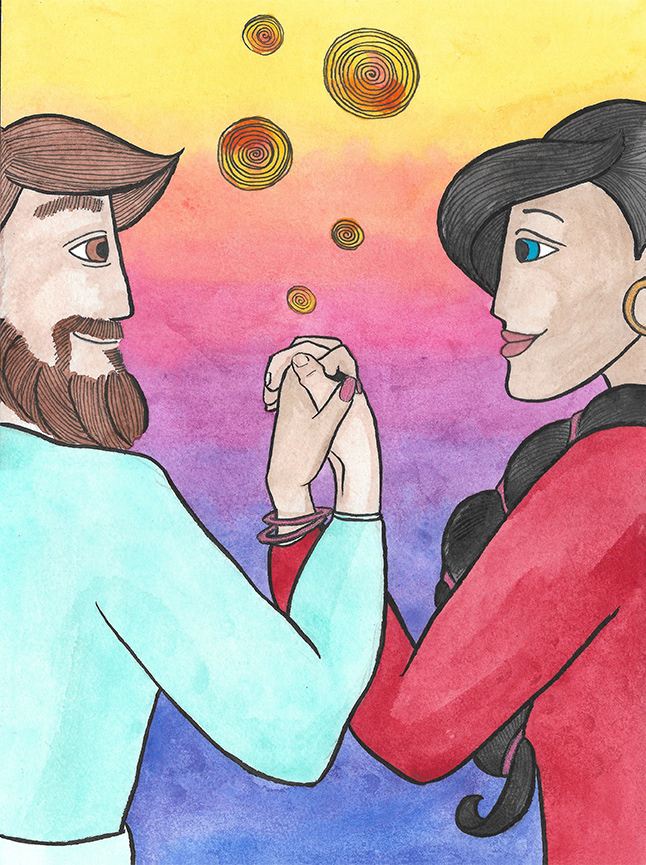
The warrior of light pays close attention to a text that the the Soul of the World transmitted to Chico Xavier: 'When you have managed to overcome grave problems in a relationship, do not spend time remembering the difficult times, concentrate on the joy of having passed yet another of life's tests. When you emerge from a long period of medical treatment, do not brood on the suffering you endured, think instead of God's blessing that allowed you to be cured. Carry in your memory, for the rest of your life, the good things that came out of those difficulties. They will serve as a proof of your abilities and will give you confidence when you are faced by other obstacles'.

The warrior of light concentrates on the small miracles of daily life. He is capable of seeing what is beautiful because he carries beauty within himself, for the world is a mirror and gives back to each man the reflection of his own face. The warrior knows his faults and limitations, but he does all he can to mantain his good humor in moments of crisis. The world is, after all, doing its best to help him, even though everything around him seems to be saying the opposite.

There is such a thing as emotional rubbish; it is produ"ed in the factories of the mind. It consists of pain that has long since passed and is no longer useful. It consists of precautions that were important in the past, but serve no purpose in the present. The warrior has memories too, but he learns how to separate the useful from the unnecessary; he disposes of his emotional rubbish. A companion says: 'But that's part of my history. Why should I jettison feelings that marked my very existence?' The warrior smiles, but he does not try to feer things that he no longer feels. He is changing and he wants his feelings to keep pace with him.

When the master sees that the warrior is depressed, he says: 'You are not what you seem to be in these moment of sadness. You are better than that. Many have left - for reasons we will never undestand - but you are still here. Why did God carry off all those amazing people and leave you? By now, millions of people will have given up. They don't get angry, they don't weep, they don't do anything; they merely wait for time to pass. They have lost their ability to react. You, however, are sad. That proves that your soul is still alive'.

Sometimes, in the middle of apparently endless battle, the warrior has an idea and he manages to triumph in a matter of seconds. Then he thinks: 'Why did I labour for so long over a battle that could have been resolved with only half the energy I spent on it?' The truth is that all problems seem very simple once they have been resolved. The great victory, which appears so simple today, was the resultof a series of small victories that went unnoticed. Then the warrior understand what happened and he slleps easy. Far from blaming himself for having taken so long to arrive, he is simply glad to know that he did arrive in the end.

There are two types of prayer. In the first type, the person asks for certain things to happen and attempts to tell God what he should do. This does not allow the Creator either time or space in which to act. God - who knows perfectly well what is best for each of us - will continue to do as He sees fit. And the person praying is left with the impression that his prayer went unanswered. In the second type, the person may not understand the Almighty's intentions, but he allows his life to develop according to his Creator's plans. He asks to be spared suffering, he asks for joy in the Good Fight, but he never forgets to add: 'Thy will be done'. This is how the warrior of light chooses to pray.
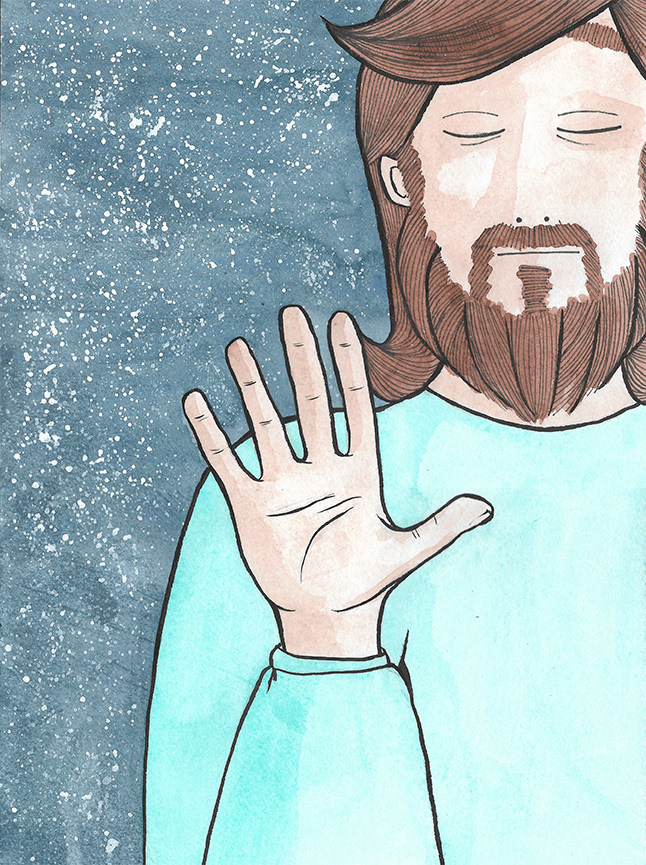
The warrior knows that the most important words in all languages are the small words. Yes. Love. God. They are words that are easy enough to say and which fill vast empty spaces. There is, however, one word - another small word - that many people have great difficulty in saying: no. Someone who never says no, thinls of himself as generous, understanding, polite, because 'no' is thought of as being nasty, selfish, unspiritual. The warrior does not fall into this trap. There are times when, in saying 'yes' to others, he is actually saying 'no' to himself. That is why he never says 'yes' with his lips if, in his heart, he is saying 'no'.

First: God is sacrifice. Suffer in this life and you will be happy in the next. Second: People who have fun are childish. Remain tense at all times. Third: Other people know what is best for us because they have more experience. Fourth: Our duty is to make other people happy. We must please them even if that means making major sacrifices. Fifth: We must not drink from the cup of happiness; we might get to like itand we won't always have itin our hands. Sixth: we must accept all punishments. We are guilty. Seventh: Fear is a warning. We don't want to take any risks. These are the commandments that no warrior of light can obey.

A very large group of people is standing in the middle of the road, barring the way into Paradise. The puritan asks: 'What are these sinners doing here?' And the moralist bawls: 'The prostitute wants to join the feast!' The guardian of social values yells: 'How can the adulteress be forgiven when she has sinned?' The penitent rends his clothes: 'Why cure a blind man if all he cares about is his illness and when he doesn't even say thank you?' The ascetic protests: 'You let that woman pour expensive oil on your hair! Why didn't sge sell it instead to buy food?' Smiling, Jesus holds the door open. And the warriors of light go in, despite the hysterical shouting.
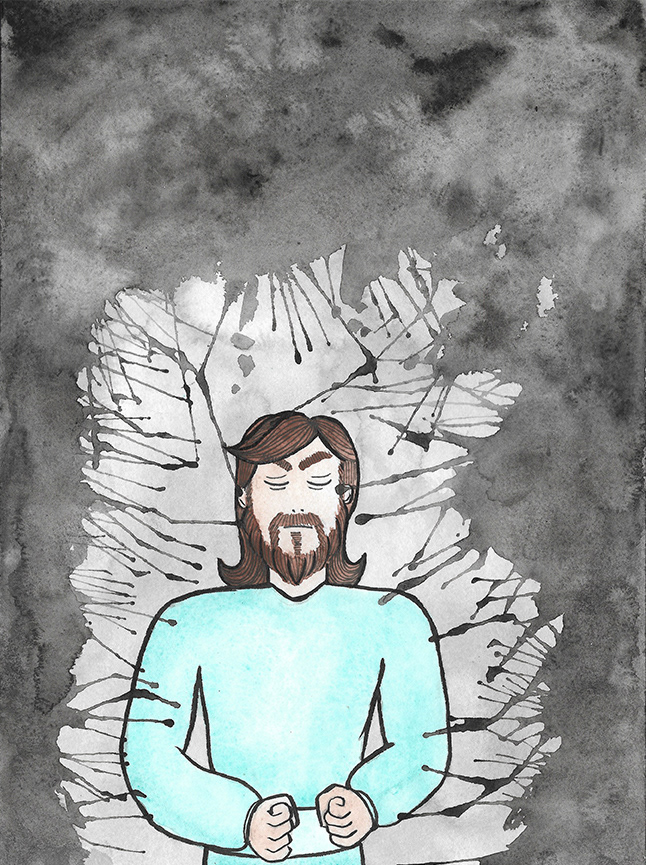
I've been on holiday for a week, and I went in Brussels with my beloved who's working there. Distance is not easy, but I'll soon be moving, too. I didn't stop to work on my warrior, anyway, I kept drawing, and soon the last illustrations will be ready and posted! #staytuned ! ☀️ • • • The opponent is wise. Whenever he can, he makes use of the easiest and most effective of his weapons: gossip. It doesn't take much effort to use it because others do the work for him. A few misdirected words can destroy months of dedication, years spent in search of harmony. The warrior of light is often the victim of this trick. He does not know where the blow is false and cannot prove that the gossip is false. Gossip does not allow him the right to defend himself: it condemns without a trial. When this happens, he puts up with all the consequences and undeserved punishment, for, as he well knows, words are powerful. But he suffers in silence and never uses the same weapon to hit back at his opponent. The warrior of light is not a coward.
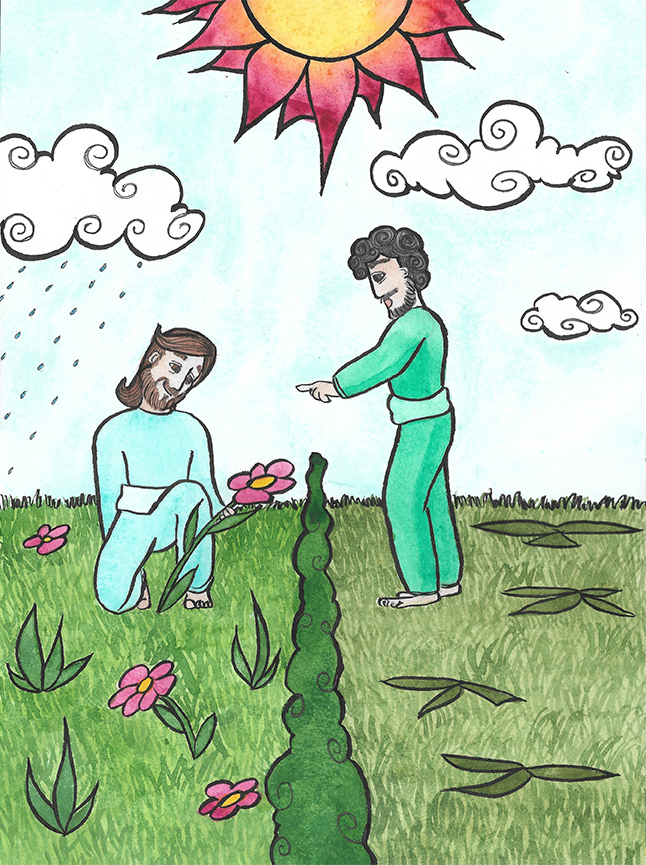
'You can give a fool a thousand intellects, but the only one he will want is yours', says an Arabic proverb. When the warrior of light starts planting his garden, he notices that his neighbour is there, spying. He likes to give advice on when to sow actions, when to fertilise thoughts and water conquests. If he listens to what his neighbour is saying,he will end up creating something that is not his; the garden he is tending will be his neighbour's idea. But a true warrior of light knows that every garden has his own mysteries, which only the patient hand of the gardener can unravel. That is why he prefers to concentrate on the sun, the rain and the seasons. He knows that the fool who gives advice about someone else's garden is not tending his own plants.

In order to fight, you must keep your eyes open and have faithful companions by your side. It can happen that someone who was fighting alongside the warrior of light suddenly becomes his opponent instead. The warrior's first reaction is hatred, but he knows that a blond combatant is lost in the midst of battle. And so he tries to see the good things that his former ally did during the time in which they lived side by side; he tryes to understand what led to that sudden change of attitude, what wounds he had accumulated in his soul. He tries to discover what made one of them abandon their dialogue No one is entirely good or evil; that is what the warrior thinks when he sees that he has a new opponent.

A warrior knows that the ends do not justify the means. Life carries him from unknown to unknown. Each moment is filled with this thrilling mystery: the warrior does not know where he came from nor where he is going. But he is not here by chance. And he is overjoyed by surprises and excited by landscapes that he has never seen before. He often feels afraid, but that is normal in a warrior. If he thinks only of the goal, he will not be able to pay attention to the signs along the way. If he concentrates only on one question, he will miss various answers that are beside him. That is why the warrior submits.

The warrior knows about the 'waterfall effect'. He has often seen someone mistreating another person who lacks the courage to respond. Then, out of cowardice and resentment, that person vents his anger on someone weaker than himself, who takes it out on someone else, in a veritable torrent of misery. No one knows the consequences of his own cruelty. That is why the warrior is careful in his use of the sword and only accepts an opponent who is worthy of him. In moments of rage, he punches a rock and bruises his hand. The hand will heal eventually, but the child who got beaten because his father lost a battle will bear the marks for the rest of his life.

When the order to move on comes, the warrior looks at all the friends he has made during the time that he followed the path. He taught some to hear the bell of a drowned temple, he told others stories around the fire. His heart is sad, but he knows that his sword is sacred and that he must obey the orders of the One to whom he offered up his struggle. Then the warrior thanks his travelling companions, takes a deep breath and continues on, laden with memories of an unforgettable journey.

Epilogue: It was dark by the time she finished speaking. The two of them sat watching the moon rising. 'Many of the things you told me contradict each other,' he said.
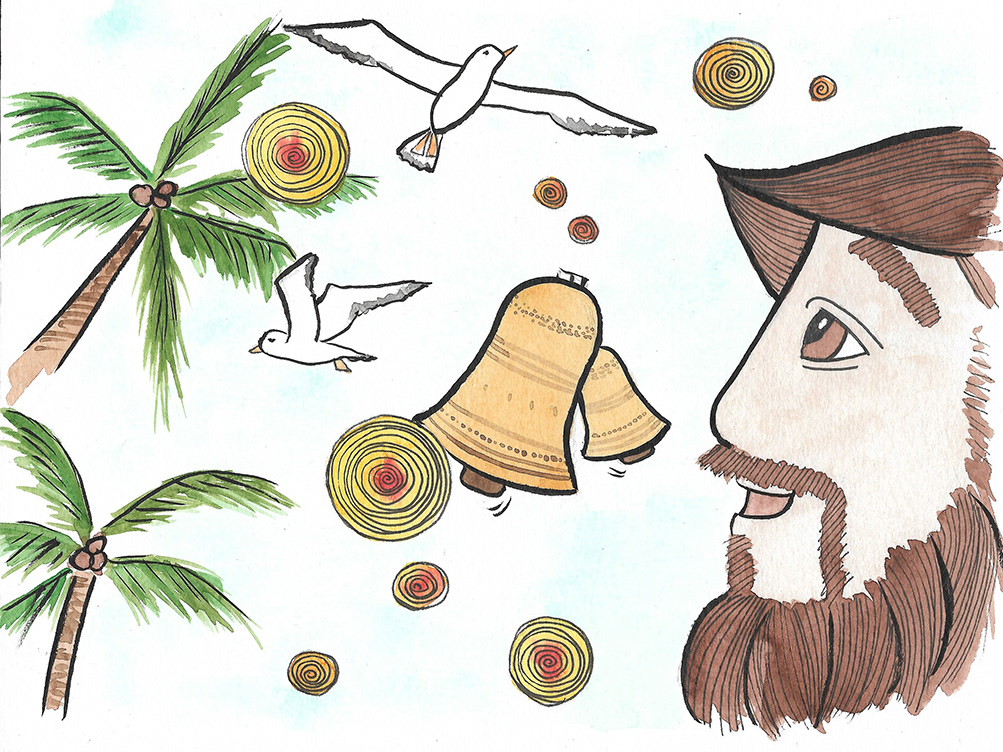
She got up. 'Goodbye,' she said. 'You knew that the bells at the bottom of the sea were not just a legend, but you could only hear them when you realised that the wind, the seagulls and the sound of the palm fronds were all part of the pealing of the bells. In just the same way, the warrior of light knows that everything around him - his vicories, his defeats, his enthusiasm and his despondency - form part of his Good Fight. And he will know wich strategy to ise when he needs it. A warrior does not try to be coherent; he has learned to live with his contraddictions'.

'Who are you?' he asked. But the woman was already moving off, walking over the waves towards the rising moon.


